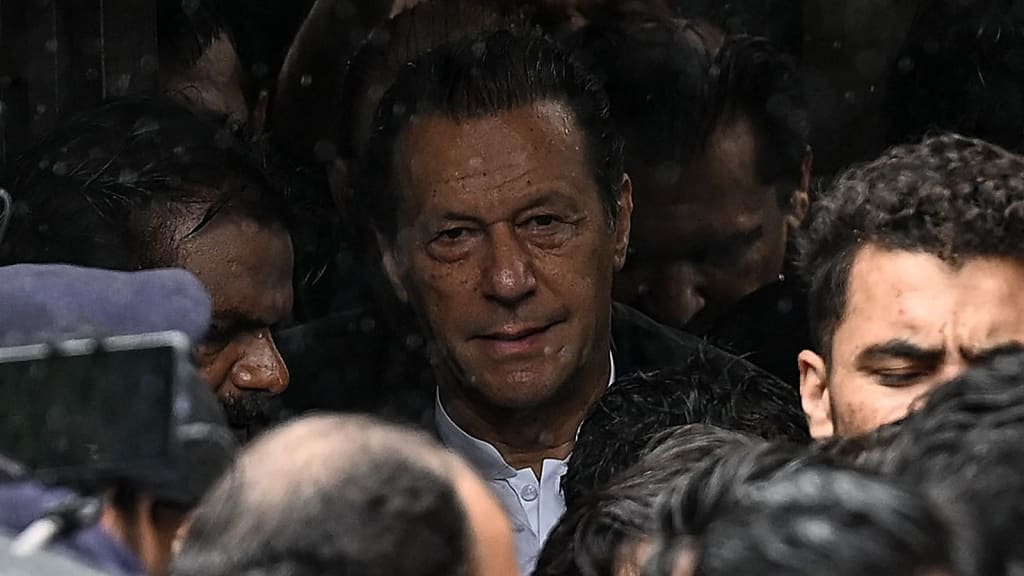
Imran Khan is a former Pakistani cricketer and politician who has left an indelible mark on the world. Born on October 5, 1952, in Lahore, Pakistan, Imran grew up in a privileged family and attended some of the best schools in Pakistan and the United Kingdom. He developed a love for cricket at a young age and began playing the sport competitively in his teens.
Imran's talent for cricket was evident early on, and he soon established himself as one of the top cricketers in Pakistan. He made his debut for the Pakistani national team in 1971, and over the course of his career, he played in 88 Test matches and 175 One Day Internationals. He was known for his fast bowling and aggressive batting style, and he captained the Pakistani team to several major victories, including the 1992 Cricket World Cup.
However, Imran's success in cricket was not without its challenges. He faced several personal and professional setbacks throughout his career, including injuries, political turmoil, and a general lack of support from the cricketing establishment. Despite these challenges, Imran remained determined to succeed and became known for his grit and perseverance.
One of the biggest challenges Imran faced in his cricketing career was a series of injuries that threatened to end his playing days. In 1982, he suffered a stress fracture in his shin, which forced him to take a break from cricket for nearly two years. Many thought that he would never be able to play cricket again, but Imran remained committed to his rehabilitation and worked tirelessly to regain his fitness.
In 1987, Imran suffered another setback when he was diagnosed with a career-threatening shoulder injury. He underwent surgery to repair the injury and spent several months recovering, during which time he also began to contemplate his future beyond cricket.
It was during this period of recovery that Imran became increasingly interested in politics. He had always been passionate about social justice issues, and he saw politics as a way to effect real change in Pakistan. He began attending political rallies and meetings, and he soon established himself as a vocal critic of the ruling government.
In 1996, Imran founded the Pakistan Tehreek-e-Insaf (PTI) party, with a vision to create a just and equitable society in Pakistan. He ran for office several times, but it wasn't until the 2013 general elections that his party won enough seats to form a government in the province of Khyber Pakhtunkhwa.
Imran's foray into politics was not without its challenges. He faced opposition from the ruling government, which accused him of being a "fascist" and a "Taliban sympathizer." He also faced criticism from some quarters for his perceived lack of experience and his controversial views on certain issues, such as the war on terror and relations with India.
Despite these challenges, Imran remained committed to his vision of a better Pakistan. He implemented several reforms during his tenure as the Chief Minister of Khyber Pakhtunkhwa, including improvements to the health and education sectors, and he also launched several ambitious infrastructure projects.
In 2018, Imran's PTI party won a landslide victory in the general elections, and he was sworn in as the Prime Minister of Pakistan. He has since faced a range of challenges, including a struggling economy, rising inflation, and the COVID-19 pandemic. However, he remains committed to his vision of a better Pakistan and has launched several initiatives to address these challenges.
Imran Khan's journey in politics has been filled with many challenges, and his struggles did not end after he was elected as the Prime Minister of Pakistan in 2018. In fact, some would say that his challenges increased after he took office.
One of the biggest challenges that Imran has faced in politics is the opposition from his political opponents. The two major political parties in Pakistan, the Pakistan People's Party (PPP) and the Pakistan Muslim League-Nawaz (PML-N), have been critical of Imran's policies and have accused him of being a puppet of the military. They have also accused him of being an inexperienced leader who lacks the ability to govern effectively.
In addition to opposition from his political opponents, Imran has also faced criticism from other quarters. Some critics have accused him of being a divisive figure who has failed to unite the country. Others have accused him of being too close to China, which has become an increasingly important ally for Pakistan in recent years.
Another major challenge that Imran has faced is the struggling economy. Pakistan's economy was already in a precarious state when he took office, and it has since deteriorated further. The country is facing high inflation, a large trade deficit, and a debt crisis. Imran has launched several initiatives to address these issues, but progress has been slow.
The COVID-19 pandemic has also posed a major challenge for Imran's government. Pakistan has one of the highest infection rates in the world, and the healthcare system is struggling to cope. Imran has been criticized for his handling of the pandemic, with some accusing him of being slow to respond and failing to provide adequate support to frontline workers.
Perhaps the biggest challenge that Imran has faced in politics, however, is the military's role in Pakistani politics. The military has a long history of interference in politics, and many have accused Imran of being a puppet of the military establishment. Imran has denied these allegations, but his government has been criticized for being too reliant on the military for support.
In recent years, Imran has also faced criticism from within his own party. Some members of the PTI have accused him of being too authoritarian and failing to consult with party members before making important decisions. There have also been reports of rifts within the party, with some members openly criticizing Imran's leadership style.
Despite these challenges, Imran remains committed to his vision of a better Pakistan. He has launched several initiatives to address the country's problems, including a housing project aimed at providing affordable housing to the poor, and a program to plant 10 billion trees to combat climate change. He has also launched several anti-corruption initiatives aimed at rooting out corruption from Pakistani politics.
Imran's struggles in politics are far from over, but he remains determined to overcome them. He has been a polarizing figure in Pakistani politics, but he has also inspired many with his vision and determination. Whether he will be able to achieve his goals remains to be seen, but one thing is certain: Imran Khan's journey in politics has been a long and difficult one, and his struggles are far from over.
About the Creator
Zain Khan
I am an accomplished storyteller with a gift for bringing characters and places to life through my vocal performance. With my rich and expressive voice, I captivate audiences and take them on a journey through my imaginative storytelling.






Comments
There are no comments for this story
Be the first to respond and start the conversation.